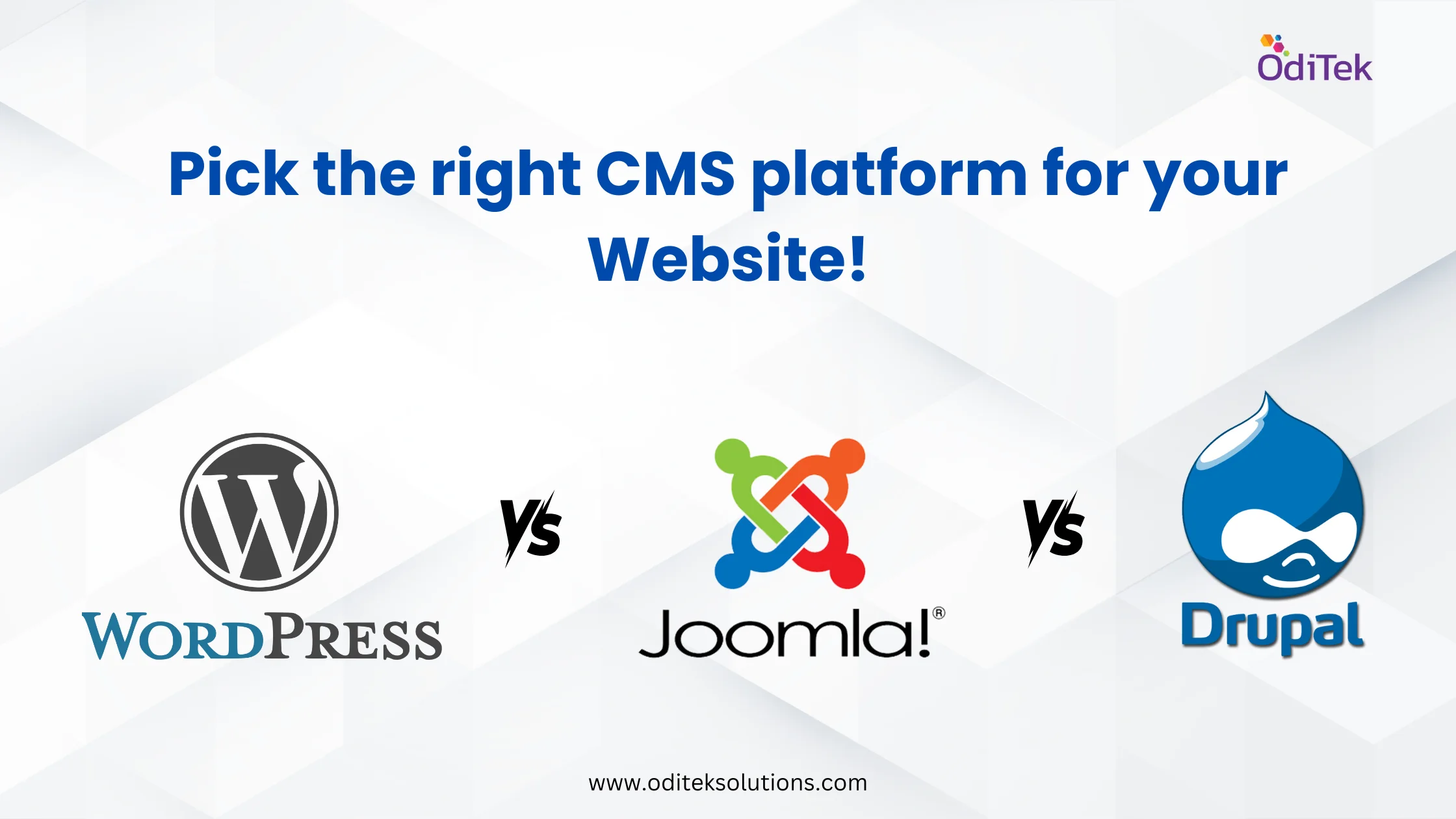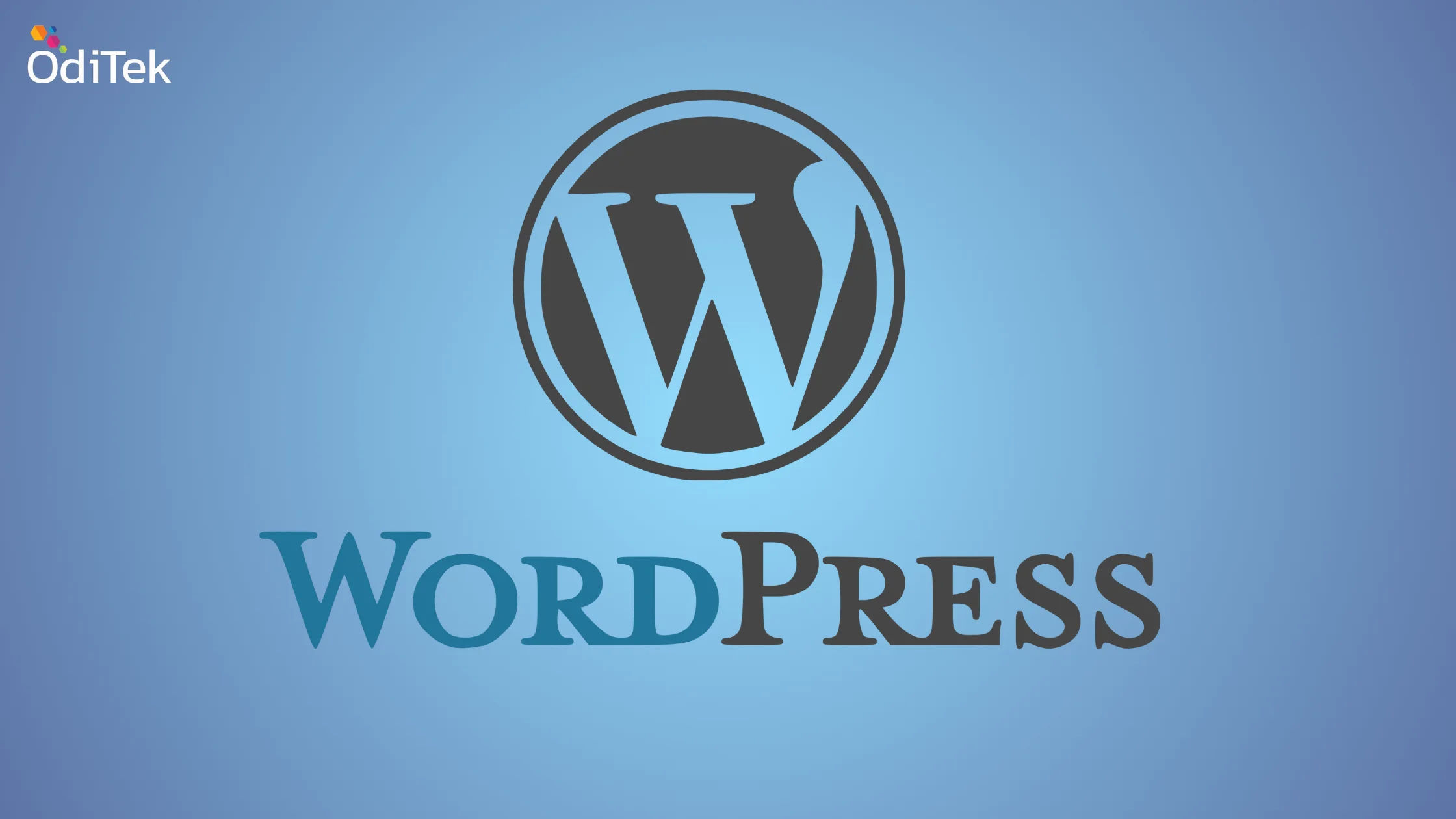Selecting the right CMS hinges on the unique requirements of your project. WordPress is ideal for users seeking a user-friendly, highly customizable platform, perfect for blogs, small business websites, and e-commerce. Joomla is suited for those who need more advanced functionality and robust security, making it great for complex projects like e-commerce or social networking sites. Drupal is the best choice for enterprise-level applications, offering unmatched scalability, flexibility, and security, but it requires a higher level of technical expertise. Each CMS has its strengths, so your decision should align with your project’s requirements.
Quick Overview of WordPress, Joomla, and Drupal
WordPress, Joomla, and Drupal each bring unique strengths to the table, catering to different types of projects. WordPress stands out for its widespread popularity, powering over 40% of websites globally. Its intuitive interface makes it a go-to choice for beginners and non-technical users, with a vast array of over 58,000 plugins and numerous themes that allow extensive customization without coding. This makes WordPress particularly well-suited for blogs, small to medium-sized business websites, and e-commerce stores. The platform also benefits from a large and active community, ensuring continuous improvements and robust support.
On the other hand, Joomla offers a balance between ease of use and advanced functionality, making it ideal for users who need more control than WordPress provides. With its powerful customization options through templates and extensions, Joomla is perfect for building multilingual websites and handling complex web applications such as e-commerce and social networking sites. Its strong security features make it a preferred choice for government and large organizational websites. Joomla is backed by a strong developer community, which ensures frequent updates and comprehensive documentation.
For those needing a highly scalable and secure platform, Drupal is the CMS of choice. It is designed to handle large volumes of content and high traffic, making it ideal for enterprise-level applications, corporate websites, and complex content-driven sites. While Drupal offers unmatched flexibility and customization, it does require a higher level of technical expertise. Its superior security features make it a favourite among governments, large corporations, and institutions with stringent security requirements. Drupal’s performance is optimized for handling large, complex websites, and it is supported by a dedicated and active community of developers.
WordPress vs Joomla vs Drupal: A detailed Comparison
If you’re looking to set up an online store, an e-learning platform, or a membership portal, and you need to upgrade your digital presence, a crucial question is, which CMS (Content Management System) should you choose?
The main contenders are Drupal, WordPress, and Joomla. Each offers unique strengths, so how do you determine the best fit for your business’s needs and future growth?
1. The similarities between Drupal vs WordPress vs Joomla
i. Open Source: Free to use with collaborative development, leading to faster introduction of new features, quicker issue resolution, and thorough security vetting.
ii. Technology Stack: Built on PHP and MySQL, with extensive community support.
iii. Customization: Use themes/templates for styling and offer plugins/modules/extensions for added functionality.
2. What functionality do they offer?
To compare the functionality of Drupal, WordPress, and Joomla, we evaluated the following factors:
i. Content Types:
-
• WordPress: Offers Posts and Pages with a simple content model. Since WordPress 5.0, it includes the block editor (Gutenberg), though its adoption has been mixed.
• Joomla: Features a basic content type (Article) but is highly adaptable through extensions. It typically requires additional development support for full functionality.
• Drupal: Provides a richer set of built-in content types and customization options. Like Joomla, it often needs development support, though a plugin allows WordPress’s block editor to be used within Drupal.
ii. Access Controls
-
All three platforms offer robust access control with customizable user permissions and capabilities to meet diverse needs.
Multilingual Capabilities:
• WordPress: Requires plugins for multilingual support, and its implementation is less seamless compared to Joomla and Drupal. Improvements are planned for future updates.
• Joomla: Includes built-in multilingual support, providing a more integrated solution.
• Drupal: Offers strong multilingual capabilities through modules, providing extensive language support.
iii. Data Handling
-
• Joomla and Drupal have complex database structures, which can enhance data management and performance but may complicate troubleshooting.
• WordPress uses a simpler database schema with a single posts table, which can be less efficient for complex data needs but easier to manage in simpler setups.
3. How effective are they for Search Engine Optimization (SEO)?
All three CMS platforms allow for effective management of key SEO factors, such as page load times (through caching techniques or Content Delivery Networks) and schema.org implementations. WordPress stands out with its excellent SEO capabilities, particularly through the widely-used Yoast plugin, which offers powerful functionality and usability. While Joomla offers extensions like EFSEO that provide similar features, they don’t quite match the capabilities of Yoast. Additionally, WordPress has integrated new SEO functionalities into its core platform, such as native SEO sitemaps developed in collaboration with Google.
4. How user-friendly are they?
Despite some initial accessibility concerns with the introduction of the Gutenberg editor, WordPress is generally considered a more user-friendly website builder for content editors, making it a popular choice. In contrast, platforms like Drupal, often described as being “written by developers for developers,” may pose usability challenges for end users, particularly when it comes to content creation. Compared to WordPress, Drupal’s content creation process is often perceived as more complex and less intuitive.
5. How secure are they?
All three CMS platforms have experienced security vulnerabilities at some point. The security strength of a CMS is largely determined by how effectively the organization addresses these issues. Ensuring long-term security extends beyond the application layer, depending heavily on the hosting environment and ongoing maintenance processes.
6. Online popularity
WordPress significantly outpaces the other two platforms in terms of online presence. A Google search for WordPress returns approximately 6.88 billion results, with numbers increasing annually, while Drupal and Joomla return about 30.7 million and 40.6 million results, respectively.
7. What are the cost differences?
WordPress, Drupal, and Joomla are all open-source platforms, which means the basic software is available for free. However, unless your needs are limited to a simple blog or digital showcase, you’ll likely require expert assistance for implementation and ongoing maintenance, regardless of the CMS you choose. Costs can vary depending on the complexity of your site, the need for custom development, and the level of support required.
Conclusion
Between these three, WordPress vs Joomla vs Drupal Choosing the right CMS depends on your specific needs, technical expertise, and the type of site you want to build. Each platform has its strengths, and understanding them will help you make the best choice for your project. Ultimately, the best CMS for your project depends on your specific needs, technical skills, and the complexity of your site.
At OdiTek, we’re here to help you navigate these choices and implement the right solution tailored to your goals. Whether you choose WordPress, Joomla, or Drupal, our team of experts is ready to support you in creating a powerful and effective digital presence.
Feel free to reach out to us for professional assistance in setting up the perfect CMS for your business.







